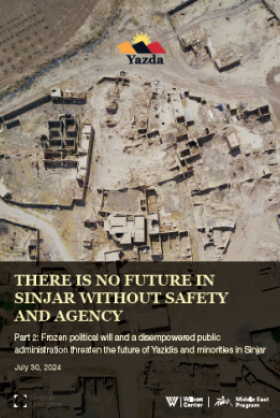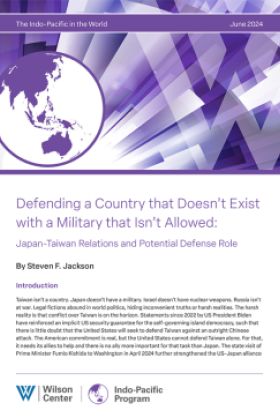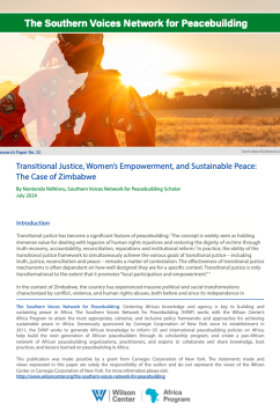Peace Without Partners: Can Israeli Unilateralism Lead to a Two-State Solution?
Blue White Future, a non-partisan Israeli organization that seeks to help achieve a two-state solution, has developed a radical new approach to achieve this goal. Blue White Future’s co-founder Ami Ayalon presented the plan and for a wide-ranging discussion of prospects for Israeli-Palestinian peace.
Overview
Peace negotiations between Israel and the Palestinian Authority have been all but abandoned. In light of increasing skepticism on both sides, an expert panel examined a new paradigm for establishing a two-state solution.
On May 17, the Middle East Program hosted a meeting on “Peace Without Partners: Can Israeli Unilateralism Lead to a Two-State Solution?” with Ami Ayalon, Co-founder and Member of the Board of Directors of Blue White Future, Former Director of the Israel Security Agency (Shin Bet) and Commander-in-Chief of the Israel Navy; and Robert Malley, Program Director, Middle East and North Africa, International Crisis Group. Aaron David Miller, Distinguished Scholar at the Woodrow Wilson Center, moderated the event.
Ayalon explained that the biggest threat Israel faces is failing to safeguard Israel as a Jewish-majority democratic state. Changes in the region and assumptions that negotiations could be destructive mean a viable negotiated peace will not emerge. Instead, Ayalon suggested a new paradigm he referred to as “coordinated unilateralism,” where Israel will act independently on the basis that both Israelis and Palestinians wish for two independent and secure states based on the discussions of the last 20 years. This paradigm will demand six Israeli actions: announcing that negotiations will be based on 1967 borders with a territory swap and Clinton parameters; stopping the building of settlements on the eastern side of the security border and in Arab neighborhoods of Jerusalem; the Israeli Knesset passing legislation giving compensation to settlers wishing to return to Israel; Israel’s government being ready to implement a plan to bring back 100,000 settlers if established in an agreement with the Palestinians; the IDF remaining but not taking security risks; and the Knesset passing a law of national referendum to make an agreement the decision of the Israeli people, thus reducing animosity and violence. Ayalon argued that this paradigm sends a message to the Israelis that settlers who choose not to seek relocation do so independently of Israeli land aspirations; to the Palestinians, illustrating Israel is acting independently of Palestinian violence; and to the international community that Israel is taking its destiny into its own hands.
Malley claimed that Israelis and Palestinians no longer believe in the peace process, and the resumption of negotiations will do more harm than good. There is a “collective addiction” to the peace process since it serves the interests of all sides: of Israel whose commitment to the process is often doubted; it gives diplomatic weight to the Palestinian leadership; and to members of the Quartet, who now have a seat at the table in what was once a U.S.-dominated sphere of influence. Malley emphasized that as the situation in the region changes, U.S. leverage declines, and the Palestinian political landscape is transformed, the peace process of the past has to change as well. He argued that unilateralism is beneficial because progress made in the past has been a result of unilateral steps taken by Israel. For the Palestinian leadership, it is an easier tactic to accept since they cannot reject the Israeli decision even if they continue to claim it is not enough. The most likely path pursued will be both sides taking steps for their own interests that will approach a two-state solution.
Miller commented that the reality of the situation is that nothing tried over the last three decades has worked. There is a need to take a clear look at obstacles to a conflict-ending agreement in order to address them. He said that leaders that have both a real capacity and intention to pursue the process are vital to an agreement’s success. A sense of urgency is required to get politicians and citizens behind the process, and, at some point, a third party mediator will be needed to facilitate success.
By Joanna Abdallah, Middle East Program
Hosted By

Middle East Program
The Wilson Center’s Middle East Program serves as a crucial resource for the policymaking community and beyond, providing analyses and research that helps inform US foreign policymaking, stimulates public debate, and expands knowledge about issues in the wider Middle East and North Africa (MENA) region. Read more
Thank you for your interest in this event. Please send any feedback or questions to our Events staff.











